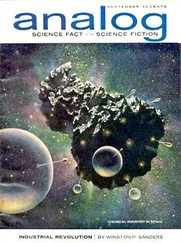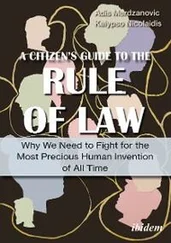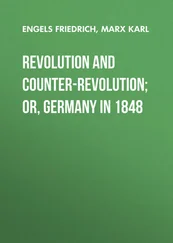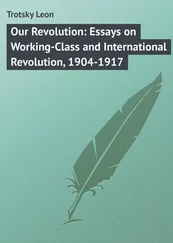Day three, Operation Overkill rumbled on. A lone Grenadan sniper took a shot at some U.S. soldiers. They happened to be a CCT able to call in air strikes. Normal procedure required them to check with battalion HQ about new targets. They lacked the right radio codes to contact the HQ. But hey, they figured, why not call in the strike anyway. Navy planes screeched through the sky and smashed their target. Whoops. It was a U.S. Army command post, and three American soldiers were injured in the strike.
Even this gaffe didn’t kill Operation Overkill. The generals in Washington realized that only half of the hoped-for 1,100 Cubans on the island had been captured. The other half must be hiding in the hills! Patrols were sent up the long, hot, winding roads into the island’s jungle interior. The American troops, overloaded with equipment, suffered badly. Dozens dropped from heat stroke as they sweated in their polyester fatigues. The Cubans proved to be phantoms.
In Fort Frederick the Americans captured Coard along with his wife and family, all of whom had been in hiding since the day after shooting Bishop. The invasion staggered to the finish line. The United States conquered Grenada. The toll was approximately sixty-seven Grenadan dead, twenty-four Cubans. American forces announced nineteen deaths, more than half from accidents, with over one hundred wounded. Special Forces casualties remain secret, except to their pride, which they suffered in public. The medical students returned to school the next semester. Some of the off-campus students had never left.
After it was all over, the Pentagon broke out the one weapon it hadn’t fired. It handed out over 30,000 shiny new medals to the victorious American soldiers.
When the last of the troops returned home just days before Christmas, Reagan declared the U.S. military as once again “standing tall.” Imagine his pride if the United States had defeated someone really tough, like Barbados. But the invasion did boost the public’s mood as people felt good the country had asserted itself and almost killed some Russians. This upbeat mood continued, helping to propel Reagan to a landslide victory in 1984.
Oliver North parlayed his supporting role in Grenada into a starring role in the Iran/Contra scandal three years later, where he became famous for having the snappiest salute in the military. He later ran an unsuccessful Senate campaign, then became a writer and media commentator. He still hates Communists wherever he can find them.
Fawn Hall became the most famous secretary in the United States by loyally shredding documents for Ollie North and telling the world about it. After getting fired she married music manager Danny Sugerman, and the couple shared a heroin addiction. The two eventually kicked their problem and stayed married until Sugarman’s 2005 death. Bernard Coard, who got the entire party started, was tried for the coup and killing Bishop, and was sentenced to death in 1986. That sentence was later reduced to life in prison, where he is to this day, still on the little island he ruled for a week. Even that has not gone smoothly: the prison was destroyed by Hurricane Ivan in 2004, forcing Coard to live in a small prison annex.
SIXTEEN.
THE SOVIET COUP AGAINST GORBACHEV: 1991
Few people ever face the question of how to respond when the life you have created is dying right before your eyes. Do you strike out ruthlessly at the cause of the demise? Do you accept fate and make the necessary adjustments for the impending death of the only world you have ever known? Or do you just sit back and have a couple drinks while it all falls apart, trapped because you know it is useless to resist, like struggling to escape quicksand, but with the full knowledge that no man knowingly becomes the agent of his own destruction.
The men who led the coup against Mikhail Gorbachev in 1991 were faced with this decision. They were the cream of the mediocrities running the Soviet otherworld: leaders of the army, the internal security forces, the government, and the biggest industries in the Soviet Union. Gorbachev’s reforms, perestroika and glasnost, were tearing apart their world. How would they respond? What about a coup? It failed spectacularly, despite the fact that these men controlled much of the empire; their entire careers had been dedicated to pulling the switches on the greatest command-and-control system ever devised. The system died on their watch, and their collective failure became a symbol of the fate of the Soviet Union.
Mikhail Gorbachev— General secretary of the Communist Party, he tried to reform the USSR’s floundering political and economic life but accidentally reformed it out of existence.
Skinny — Appearing in public with his wife established him as new breed of open-minded Soviet leader.
Props — Received the Nobel Peace Prize in 1990 for not invading his own empire as it tore itself apart.
Pros — Believed fervently in Communism.
Cons — Believed fervently in Communism.
Boris Yeltsin— Мember of Congress of People’s Deputies, president of Russia, inveterate drunk, and expert complainer. Started his rise to power in the Communist Party when Gorbachev noticed how successfully he had demolished the house where the tsars were executed.
Skinny — Believed Russia could fail spectacularly on its own without being yoked to the Soviet Union.
Props — Stood alone atop a tank to defend the nonexistent Russian democracy.
Pros — Ended the Soviet Union.
Cons — Forgot to replace the Soviet Union with something else.
The Coupsters— Тhe cream of the mediocrities manning the repressive organs of the Soviet Empire.
Gennadi Yanayev — Drunken vice president of the USSR and fat tick living off the Soviet society, he took the lead as figurehead of the coup.
Vladimir Kryuchkov — Head of KBG, many believed he was the prime mover behind the coup.
Boris Pugo — Minister of the interior, he headed the dreaded black bereted OMON troops.
Valeri Boldin — Gorby’s chief of staff and his chief turncoat.
Valentin Pavlov — Heavy-drinking prime minister.
Marshal Dmitri Yazov — Defense minister, who while nominally in charge of the most powerful force in the country, saw his troops flout his direct orders.
When Mikhail Gorbachev assumed the post of Communist Party general secretary in March 1985, no one had any inkling of the revolution brewing inside him. For all anyone knew he was just another faceless bureaucrat, with a wine-colored stain on his forehead, who had clawed his way to the top of the Soviet political food chain. No one expected anything different from Gorbachev than what had been dished out by the previous Soviet leaders all the way back to Lenin: brutal housecleaning of the previous tenants, bullying of neighboring states, obtuse and indecipherable pronouncements on ways to “reform” or “improve” the massive seventy-year-long train-wreck of the Soviet “command economy,” reshuffling of the blizzard of acronyms in the horrifyingly obscure bureaucracy, and, as always, the same bad suits and uninspired neckties. No one expected a genuine attempt at revolution from within, in a state that had supposedly institutionalized revolution and yet seemed to be collapsing in on itself from inertia and vodka.
But that is what Gorbachev, known sweetly as “Gorby” to the Western press, did upon gaining the reins of leadership. “Glasnost” and “perestroika” — openness and restructuring — were his keywords. Gorby’s idea was to reinvigorate the gigantic barter-based economy by allowing Soviet citizens to learn some of the brutal truth about the criminal history of their country and to actually think, write, and speak about it. Despite the huge distraction of allowing the public to discuss the Gulags and the endless series of crimes committed by the Soviet regimes, Gorby still childishly believed that the gigantic felonious enterprise that was Soviet society was capable of fixing itself.
Читать дальше












